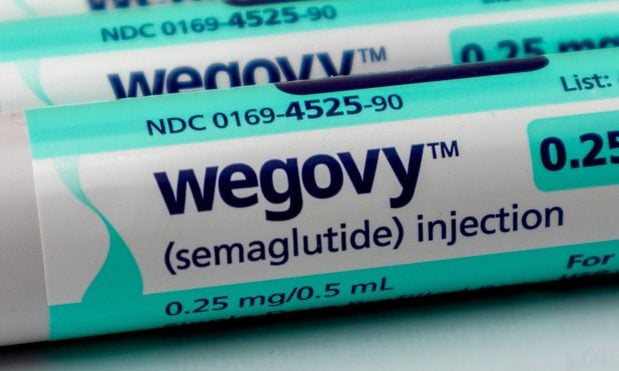For several years when I was a kid, I'd include two items on my Christmas wish list: a Teenage Mutant Ninja Turtle turtle shell toy and a Golden Retriever. I never saw either. Now, as an adult, I'm skeptical my Christmas wishes will come true — especially when it comes to health care. But that doesn't mean a girl can't dream, right? Here are five items on my Christmas list this year.
1. Reasonable health care costs
I know, I know. This is a good one. But I'm sick of writing headlines like "Soaring out-of-pocket costs plague consumers" and "4-year high premium increase projected."
Recommended For You
And most of all, I'm sick of experiencing those rising costs myself. Sure, PPACA was supposed to work great for providing affordable care to millions of Americans. But for the majority of us stuck in the middle class, it's making no difference — in fact, it's worse than ever. Take the findings of a recent New York Times/CBS News poll that finds a growing number of people who say affording basic health care is tougher a year into the implementation of the Patient Protection and Affordable Care Act. Nearly half of consumers say medical bills are a hardship for them and their families, citing increasing out-of-pocket costs. And, according to analysis from Avalere Health, the most popular exchange plans — silver — increased premiums by 10 percent on average in 2015.

2. More health care education
You know that little law called the Patient Protection and Affordable Care Act? Well, Americans are still completely clueless about it years after its inception. Though 2014 was the biggest year yet for its implementation, most still remained woefully unaware of what's been going on. Poll after poll this year has confirmed that consumers were clueless about the law's provisions, including the requirement to have health insurance or pay a fine.
It's not just PPACA confusion, either. It's the health care system and insurance in general. Most don't know the difference between a premium and a deductible. A study of consumers by the American Institutes for Research finds that though consumers say they understand health care and insurance, many lack basic knowledge and fail to ask questions about what they're getting in their policy before they enroll. According to the study, 42 percent say they are not likely or only somewhat likely to review a plan's details before signing up for coverage. Only 20 percent said they could calculate correctly how much they owe for a routine doctor's visit.
Whether this is the role of doctors, brokers, carriers, school teachers, the administration or all of the above, something's got to change.
3. Shrinking obesity rate
Simply put, and jokes aside, obesity is a big issue. (And yeah, I realize that the time of endless Christmas cookies is not the time we usually think about this.) We all know, by now, that obesity can cause a slew of other ailments including diabetes and heart disease. But despite this increased knowledge, our collective waistline isn't getting any better — it's getting worse. According to the latest America's Health Rankings, for instance, the nation's obesity rate increased 7 percent in 2014 over last year, hovering around 30 percent. Likewise, the percentage of adults who reported not participating in any physical activity in the last 30 days increased from 22.9 percent to 23.5 percent. This isn't just cause for concern; it's a big cause for action.

4. The end of sensationalism
It's funny to reflect on the year and see what took over the airwaves in a rush —and went away just as fast. Ebola was the story of 2014 despite the fact that only one of the four people who had been diagnosed with Ebola in the United States is still being treated, and the other two surviving patients already have been declared virus-free. Sure, Ebola concerns raise questions about our country's preparedness to handle and fight infectious diseases, and that's important for our health and government officials to address. But, at the same time, the hype from consumers wasn't warranted.
Too many consumers focused their worry on getting infected with a rare, exotic disease instead of worrying about things they should actually focus their attention on (that can make a difference in their health) — like getting a flu shot or exercising.
And as far as the media hype, you'd think consumers not being able to afford health care might be a bigger headline, but, hey, what do I know?
Photo: Moroccan health workers team dressed in protective gear screen passengers at the arrivals hall of the Mohammed V airport in Casablanca, Oct. 9, 2014. Associated Press/Abdeljalil Bounhar
5. Mental health focus
Headlines about high stress, depression, lack of work/life balance — we've heard (and written) it all this year. As much as we like to talk about physical health, we see the effects that mental health has on all aspects of our life — and that includes workplace productivity. Employers who focus on the mental health of their employees — from offering EAPs and flex time benefits to sick time and PTO — not only help employees but they help themselves in the long run.
On a related note, a recent study from Virgin Pulse suggested that businesses who shut down for weeks around the holidays begin the New Year as happier, healthier places to work, simply because they avoided the workplace stress mess that typically occurs around the holidays. So what are we all doing at work now, anyhow?
© 2025 ALM Global, LLC, All Rights Reserved. Request academic re-use from www.copyright.com. All other uses, submit a request to [email protected]. For more information visit Asset & Logo Licensing.







